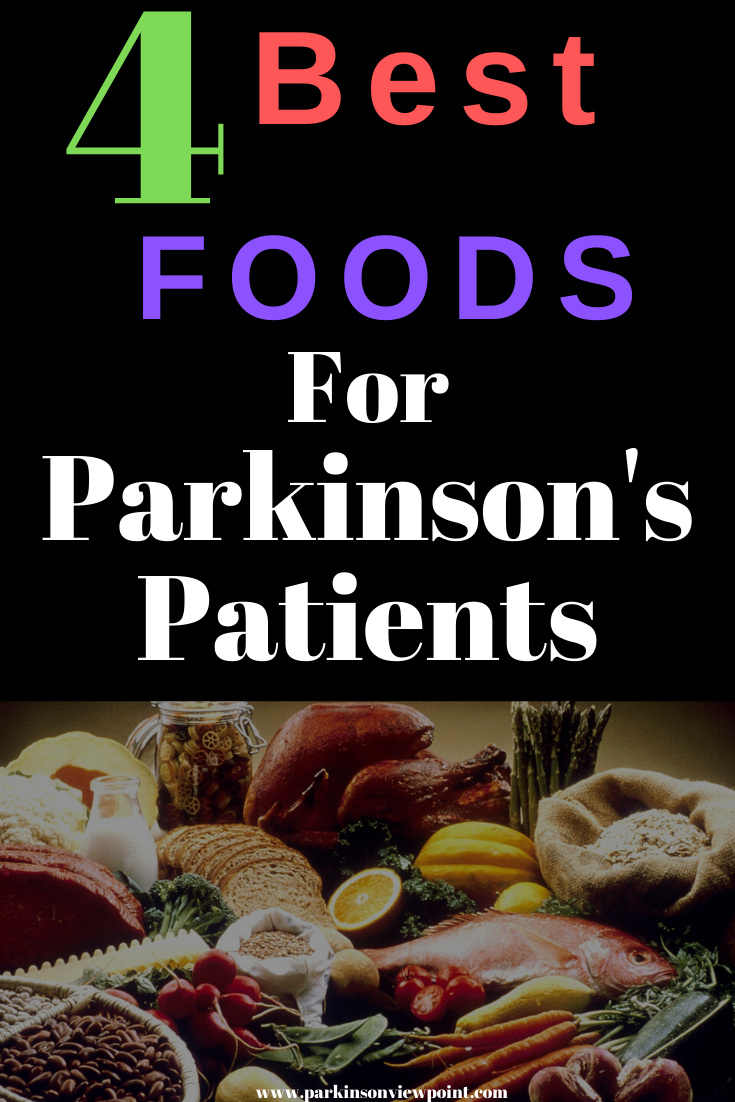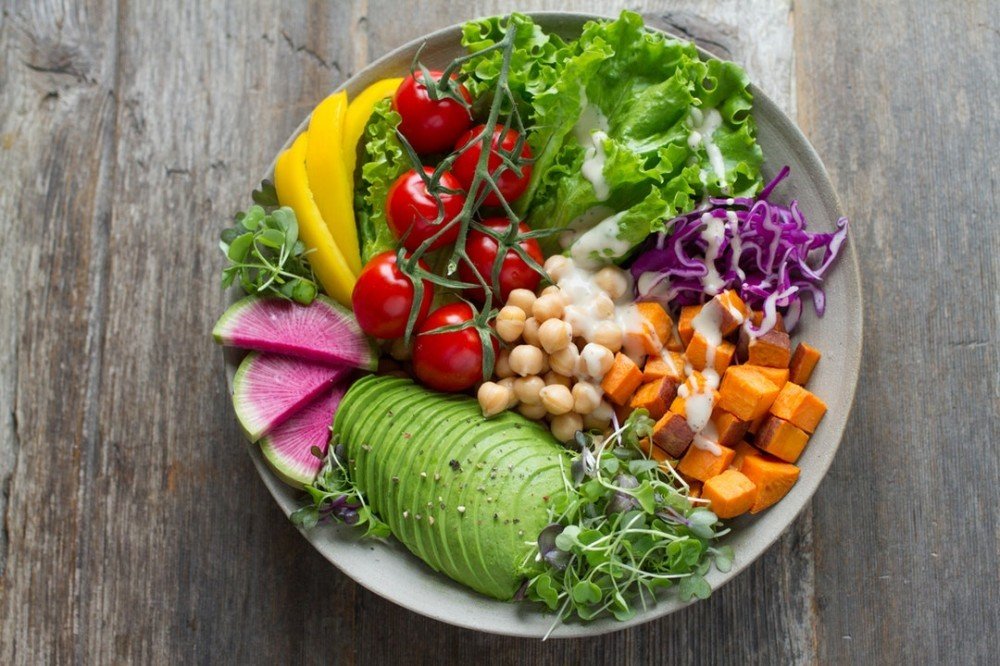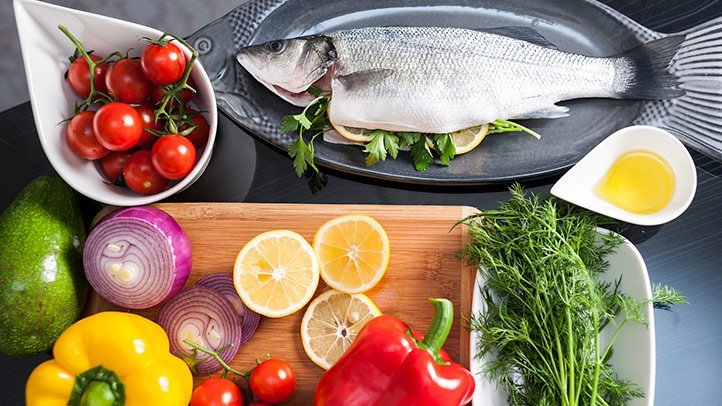Who Can Give Me Advice On Diet And Eating Problems
Depending on the country you live in your doctor may be able to refer you to any of the following specialists to give advice on diet or eating problems.
- A;dietitian;can provide advice on all aspects of nutrition and diet. They will advise on maintaining a healthy diet to suit your needs and symptoms, bearing in mind the medications you take
- A;speech and languagetherapist;will be able to help you with swallowing problems and strategies to overcome these, as well as speech difficulties. They can also help eliminate any other possible causes of swallowing problems
- An;occupational therapist;will be able to look at ideas and equipment to make food preparation and mealtimes easier .Simple changes to your kitchen and dining area can make all the difference, for example:
- adding grab rails to help you move around safely
- moving the position of equipment so that food preparation tools are grouped together so you dont need to move around as much
- buying a blender, microwave or small chopper, for example, to ease preparation and reduce the amount of time spent manually preparing food.
Medication And Food Interactions
The medication levodopa generally works best when taken on an empty stomach, about ½ hour before meals or at least one hour after meals. It should be taken with 4-5 oz. of water. This allows the drug to be absorbed in the body more quickly.
For some patients, levodopa may cause nausea when taken on an empty stomach. Therefore, your doctor may prescribe a combination of levodopa and carbidopa or carbidopa by itself . If nausea is a continual problem, your doctor may be able to prescribe another drug to relieve these symptoms. There are also tips listed below that can help relieve nausea.
Also, ask your doctor if you should change your daily protein intake. In rare cases, a diet high in protein limits the effectiveness of levodopa.
Foods To Avoid When Nauseous
Nausea is a common side effect of some Parkinson’s medications, namely Levodopa medications, such as Sinemet®, carbidopa/levodopa extended-release capsules or carbidopa/levodopa/entacapone . These medicines are best absorbed by the body when taken on an empty stomach, but that tends to make nausea worse.
Doctors often recommend taking these drugs either a half hour before a meal or an hour or more after eating. This helps balance the need to reduce nausea by making sure the drug is metabolized at an optimal level. Some people also find that it helps to eat a few crackers or a piece of bread before taking their drugs.
Don’t Miss: What Is The Life Expectancy Of Someone With Parkinson’s Disease
Avoid Protein When Taking Levodopa
Levodopa is the most common drug for Parkinsons disease. Its essentially a protein that gets transferred into dopamine in the body. Dopamine is a brain chemical thats not at sufficient levels in the brains of people with Parkinsons. More dopamine can decrease symptoms of the disease. However, since Levodopa is a protein, patients should avoid eating too much protein in their food as this can prevent the drugs absorption.
What Is Parkinsons Disease

Parkinsons disease is a progressive brain disorder that affects mobility and mental ability. If you or a loved one has been diagnosed with Parkinsons, you may be wondering about life expectancy.
According to some research, on average, people with Parkinsons can expect to live almost as long as those who dont have the condition.
Recommended Reading: Is Parkinson’s An Autoimmune Disease
What Can I Do To Help With Swallowing
Make sure you are comfortable at meal times. The following suggestions may help make it easier to eat:
- Take your time and eat in a comfortable, quiet place.
- If you feel you are taking too long and food is getting cold, consider eating smaller, more frequent meals and snacks, or food that is easier to eat.
- You can buy heated plates to keep food warm for longer or consider serving smaller portions so that a second portion can be kept warm or reheated if its safe to do so.
- Posture is important to trigger a good swallow. Try eating sitting upright in your chair.
- Try planning your meals for when your medication is working. Avoid trying to eat large meals when you are ‘off’.
- If you wear dentures try to ensure they fit comfortably. Ask for a review by your dentist if you are concerned.
- Try to eat when you are less tired, this may mean moving your main meal to lunchtime rather than in the evening.
Services To Help Those With Parkinsons
While there is no specific diet for Parkinsons disease, it is important to maintain good overall health by eating a variety of foods. Individuals with PD may have trouble following a healthy diet. An in-home care agency can help prepare and serve nutritious meals, assist with feeding, and help with cleanup after meals. If you are a loved one is suffering from Parkinsons disease and require services, contact an in-home care agency today.
Couples Care: Keeping Relationships Whole
One guide you might find helpful:
Selecting an in-home caregiver? Learn why couples care is an affordable solution for families.
Recommended Reading: What Is The Life Expectancy Of Someone With Parkinson’s Disease
Maintaining A Nutritious Diet For Parkinsons Disease
While you already know that proper nutrition is important for overall health and functioning, a well-maintained and balanced diet for Parkinsons disease is a must in order to help manage symptoms. In addition to motor symptoms, people with PD may develop symptoms that make it hard to eat, such as difficulty swallowing, excessive salivation, and reduced gastric mobility. Medications used to treat PD can also cause unfavorable symptoms, such as nausea, dry mouth, appetite loss, vomiting, and fatigue.
Ideally, people with PD should increase their fiber intake to avoid symptoms such as dehydration and constipation, while boosting their energy levels. Maintaining a balanced diet for Parkinsons disease that includes foods from all food groups including vegetables, fruit, grains, dairy, and grains is key. It is also important for individuals with PD to drink plenty of water at least 51 ounces a day. In addition to loading up on fiber-rich foods like apples, broccoli, peas, whole-grain breads, and cereals, PD sufferers should cut down on salt, sugar, and saturated fats from dairy and meat. If you drink alcohol, ask your doctor about how it could affect the effectiveness of your medications.
How To Eat Well
Eat a variety of foods from each food category, like fruits, vegetables, and lean meats. If you think you need vitamin supplements, check with your doctor first.
Keep your weight in the healthy range for your age and height with exercise and a good diet.
Load up on fiber with foods like broccoli, peas, apples, cooked split peas and beans, whole-grain breads, cereals, and pasta.
Cut down on sugar, salt, and saturated fats from meat and dairy, and cholesterol.
Drink 8 cups of water every day.
Ask your doctor you can drink alcohol. It may keep your medications from working right.
Don’t Miss: Thomas Daffron Wikipedia
Thanks For Signing Up
We are proud to have you as a part of our community. To ensure you receive the latest Parkinsons news, research updates and more, please check your email for a message from us. If you do not see our email, it may be in your spam folder. Just mark as not spam and you should receive our emails as expected.
When Should I Take My Parkinsons Medication
When you take your Parkinson’s medication should always be discussed with your GP, specialist or Parkinsons nurse.
Some people with Parkinsons may feel sick after taking medication, especially if they take it on an empty stomach.
Having a snack, such as a plain cracker or biscuit, at the same time as taking your medication can help ease this side effect. Or you may find taking medication with plenty of water can help to reduce nausea.
Your GP can also prescribe anti-sickness tablets if you do feel sick after taking your medication.
Talk to your GP, specialist or Parkinson’s nurse if you have difficulty swallowing your medication. It may help to take your medication with a cold drink, such as water, squash or fruit juice, or with yoghurt.
You may also benefit from a referral to a speech and language therapist.
Also Check: Can Parkinson’s Change Your Personality
Foods That Are Hard To Chew
Many people with Parkinsons have difficulty with chewing and swallowing foods. A person needs medical help if this is the case. A speech and language therapist may be able to help a person overcome this issue.
However, if a person is finding certain foods hard to chew and swallow, they may wish to avoid these foods.
Such foods include:
- dry, crumbly foods
- tough or chewy meats
If a person does wish to eat chewy meats, they could try using gravy or sauce to soften them and make eating easier.
They could also try chopping meat into smaller pieces or incorporating meat into casseroles, which can make it more tender.
Having a drink with a meal can also make chewing and swallowing easier.
Vitamin B12 And Folate Deficiency

Some people who take levodopa may have lower levels of vitamin B12 and vitamin B9 . Symptoms of vitamin B12 and folate deficiency can include pins and needles , a sore, red tongue, mouth ulcers and disturbed vision.
If youre worried about any symptoms youre experiencing, you should speak to your specialist or Parkinsons nurse.
Eating a well-balanced diet will give you a good amount of vitamins and minerals.
For many vitamin and mineral supplements, theres no clear scientific evidence they have any health benefits .
So, if you feel you need more of a particular vitamin or mineral, it is advisable to try to eat more of the foods containing it, rather than to buy expensive vitamin and mineral supplements.
You also need to be aware that some vitamins, when taken in large doses, can have side effects.
Some supplements, for example vitamin B6 and iron supplements, may also affect the absorption of your Parkinson’s;medication.
Before purchasing any ‘over the counter’ mineral and vitamin supplements from chemists or health food shops, consult your GP, specialist, Parkinson’s;nurse or registered dietitian for advice.
Recommended Reading: Average Life Expectancy With Parkinson’s
Introduction To Eating Right With Parkinson’s Disease
While there is no special diet required for people with Parkinson’s disease, eating a well-balanced, nutritious diet is extremely beneficial. With the proper diet, our bodies work more efficiently, we have more energy, and Parkinson’s disease medications will work properly.
This article addresses the basics of good nutrition. Please consult your doctor or dietitian before making any dietary changes. A registered dietitian can provide in-depth nutrition education, tailor these general guidelines to meet your needs, and help you create and follow a personal meal plan.
Foods For Aging Adults With Parkinsons To Avoid
Diet and nutrition play a big role in boosting general health in seniors with Parkinsons. Although there isnt a single Parkinsons diet plan recommended by doctors, its generally understood that certain foods are better than others. You already know your senior loved one should be eating plenty of fresh fruits and vegetables. In addition, you should watch out for these six foods that may need to be avoided as much as possible.
Read Also: Is Parkinson’s Genetic
Which Nutrients Are Beneficial For Parkinsons
Many of the nutrients found in the staple foods of a Mediterranean diet are beneficial for Parkinsons. One type of nutrient in particular, called antioxidants, helps to reduce damage to cells in the body that are caused by free radicals. There is some evidence that suggests antioxidants can reduce the risk of Parkinsons and support a healthy brain and healthy brain functions. Plus antioxidants are important for overall health and preventing other chronic illnesses. For these reasons, a diet high in foods containing antioxidants is essential for people with Parkinsons.
Antioxidants can be found in a variety of fruits, vegetables, herbs, spices and teas. Antioxidants include vitamin C, vitamin E, beta-carotene and flavonoids . Good sources of these antioxidants include:
Diet And Parkinson’s Medications
You should always discuss with your doctor, or Parkinsons nurse if you have one, when to take your medications. Most medications can be taken at any time and do not need to be specially timed in relation to meals. You may find sipping a drink makes it easier to swallow your tablets but avoid milk, a protein, when taking levodopa.
You May Like: What Is The Life Expectancy Of Someone With Parkinson’s Disease
Talk To Your Doctor About Food And Medication Interactions
Its a good idea to talk to your doctor about additional foods you should avoid due to potential interactions with medications you might be prescribed. Its also important to talk to your doctor before starting any additional supplementation for the same reason. Some foods and supplements can interfere with medication, making this conversation an important one to have to ensure your medication is working effectively to manage your symptoms.
Like this article? Here are some other articles we think youd like:
Eat Plenty Of Protein But Not With Levodopa Medications
If youre taking a levodopa medication, your doctor may tell you to avoid protein when taking your meds. Both animal and plant protein can interfere with the absorption of levodopa medications.
But you should still eat plenty of protein. Just be strategic with the timing. Dont take levodopa medications with meals, Dr. Gostkowski says. Its best to take it on an empty stomach either 30 minutes before your meal or an hour after eating.
If you get nauseous from the medication, eat a small amount of starchy food with it, such as crackers. Make sure whatever you eat with your medicine doesnt have protein. Its a misunderstanding that people with Parkinsons should avoid protein, Dr. Gostkowski says. You definitely need protein in your diet. Just dont eat it when youre taking your levodopa medication.
You May Like: Is Parkinson’s Terminal
How A Parkinsons Spoon Can Make Eating And Drinking Easier
Parkinsons disease symptoms like tremor, joint stiffness, or difficulty swallowing may make eating certain foods challenging. Try consulting an occupational therapist, who can recommend assistive devices that will make eating and drinking easier, says Subramanian.
One option: Use a Parkinsons spoon. This popular device is designed to make mealtime easier for people with Parkinsons disease. There are different products available, but all of them are eating utensils that have been equipped with a special design or technology that helps stabilize them as you eat.
Getting The Right Balance

A balanced daily diet will contain a wide variety of foods from the five food groups listed below. Ideally you should eat food from at least three different groups at each meal, making sure that you cover all groups throughout the day. This may not be possible if you take certain medications so always follow any instructions you are given regarding medication and diet.
General dietary recommendations currently include:
- maintaining energy intake at 25-30 kilocalories per kilogram of body weight, with additional calories if;you experience dyskinesia
- a carbohydrate to protein proportion of at least 4-5:1
- a recommended daily protein allowance of 0.8g/kg of body weight.
Recommended Reading: Stages Of Parkinson’s Disease Life Expectancy
The Reality Of Managing Symptoms
Dr. Benjamin Walter, of the Center for Neuro-Restoration at Cleveland Clinic, said that the average person isnt accustomed to the strict regimen of multiple medications a day thats part of everyday life for people with Parkinsons.
Most people feel burdened just taking an antibiotic, which can be difficult to remember. Now, imagine someone who has Parkinsons the minimal dosing is usually three times a day, Walter said.
He explained that the need to frequently take medication is because it usually only lasts in a persons bloodstream for 90 minutes.
Once the medication gets into the brain, its converted to dopamine and stored in dopamine neurons, which recycles and reuses that medication over and over until it is depleted. Now, its not uncommon to have patients on meds four or five times a day, he said.
Walter stressed that when discussing Parkinsons and off periods, no two people are the same.
Parkinsons is a highly variable disease. Some people will experience different motor symptoms and tremors than others.
For example, some people freeze when they walk, while others dont.
He said the off periods can be terrifying for many people and also cause a different symptom anxiety.
Walter said that its important for those taking care of a person with Parkinsons to understand how dangerous off periods can be.
He stressed the importance of making sure patients get their medications on schedule so that everything is kept in working order.
Visit Your Doctor More Often
The last and the most important advice we could give is to see your doctor often. Talk to your doctor about your conditions and figure out whether you need to make some changes in your diet to improve your symptoms.
Disclaimer: The information shared here should not be taken as medical advice. The opinions presented here are not intended to treat any health conditions. For your specific medical problem, consult with your health care provider.;
Recommended Reading: Is Parkinson’s Disease Fatal
Foods Not To Eat With Parkinson’s Disease
Parkinson’s is a progressive disease that causes trembling, rigidity, slowed movement and poor coordination in an estimated 1 million people in the United States, according to the Parkinson’s Disease Foundation 13. Although no known cure exists, medications, psychotherapy and dietary changes may help manage your symptoms and lower your risk for potential complications. A healthy diet improves your energy levels and overall quality of life. For best results, seek specified guidance from your doctor or dietitian.
If you are experiencing serious medical symptoms, seek emergency treatment immediately.
